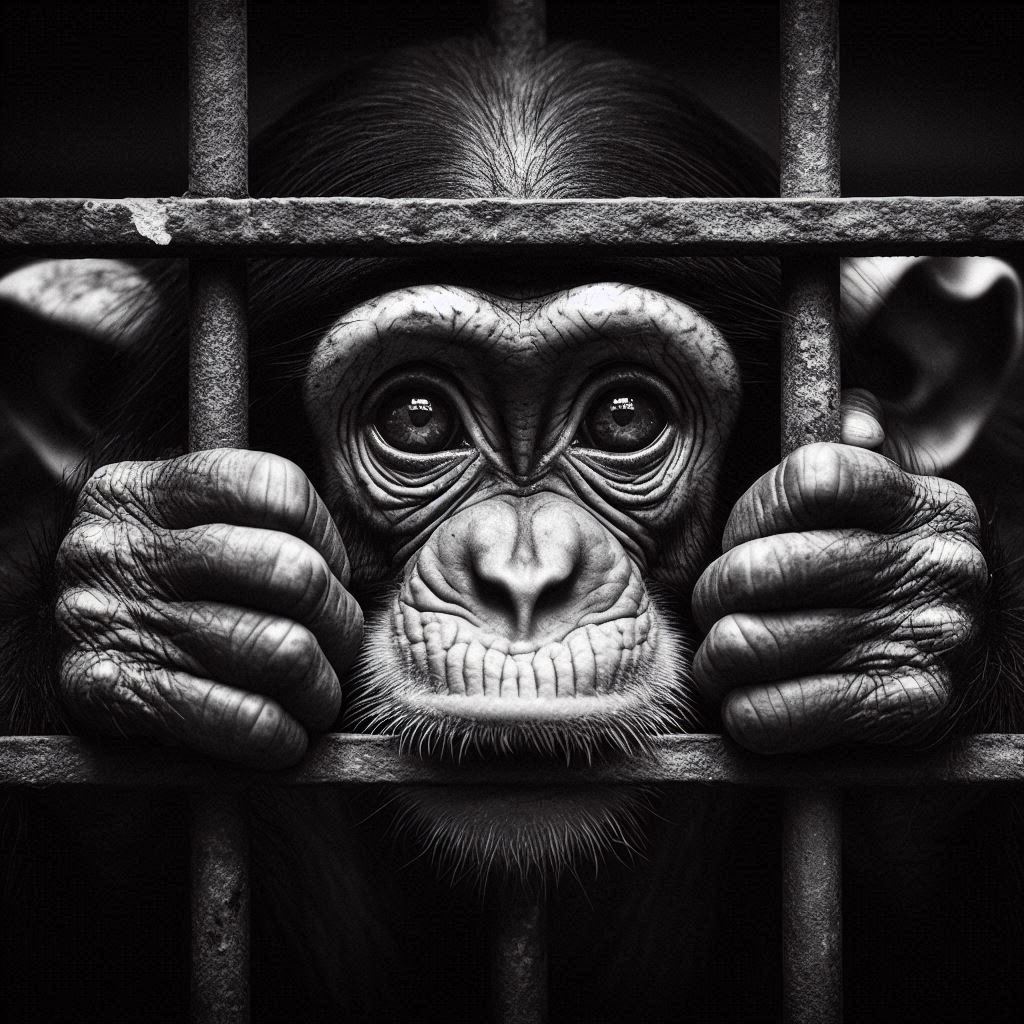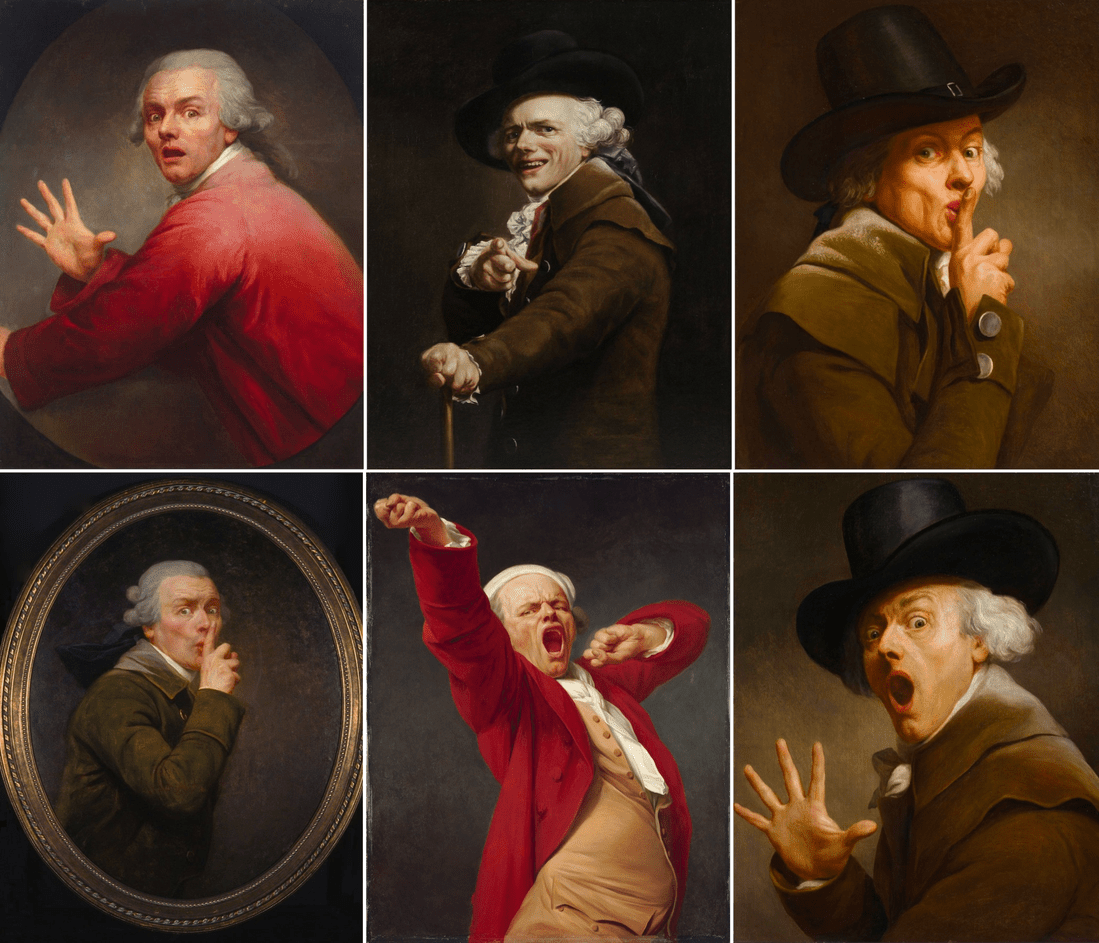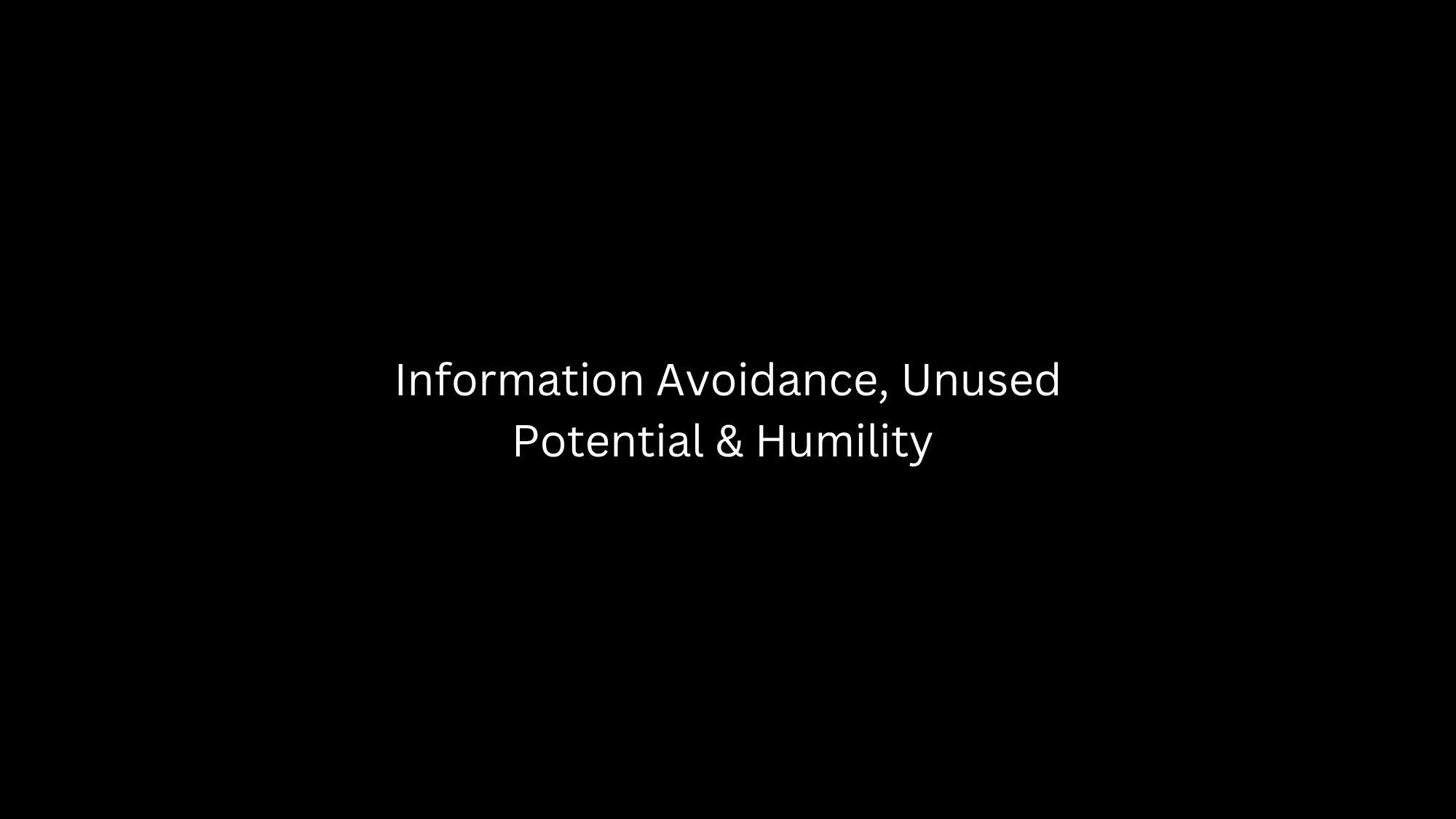

Why We Need To Reframe Our Emotions
Why we need to reframe our emotions
When we have an aversion to the less 'acceptable' emotions, we are playing an arbitrary game of good and bad without the necessary context of both sides.
If we look at our day-to-day life and what it is made up of, we can see it as an exhausting collection of micro-decisions. Whether it is our responses/reactions or even our thoughts, in all of them is an emotional charge which can shape our personality.
Unfortunately, despite emotions shaping and impacting our lives every second, rarely do we step back and consider which ones are serving us in the desired way.
Therefore, it's important to correctly contextualise them because our thoughts and emotional reactions have power over us.
This power is most potent in our emotional outbursts.
When gripped by an intense emotion, it is as if we are possessed by a stronger force greater than our own. We may say “I don’t know what came over me”, or “I wasn’t feeling myself”.
The only option then is to learn about our emotional tendencies so we can tame it and prevent future moments of instability. But instead of looking in, we tend to choose the path of least resistance, ignore it and pay the price for it later.
It is also not just ourselves that will suffer, other people can be affected by our actions. This is why it is important to get it right and my aim is to answer the why’s and the how’s.
In this article, I will address these three areas:
1. Why we have emotions.
2. What is lacking in the distinctive approaches in isolation (e.g. psychology) and why an additional evolutionary perspective is needed.
3. How reframing (recontextualising) the situation can reveal insight into the unconscious (hidden either purposefully or inadvertently).
So, let's start with the first point and define emotions, using an evolutionary lens, as put forward by the scientist/author Randolph Nesse.
What is an emotion?
Emotions are, to Nesse, “specialised states that adjust physiology, cognition, subjective experience, facial expressions, and behaviour in ways that increase the ability to meet the adaptive challenges of situations that have recurred over the evolutionary history of a species”.
They are for our genes, not us!
The understanding that comes from this is that our emotions are for the purpose of survival and therefore our happiness is not the priority.
The clearly defined emotions we think of, anger, hate, love, joy, fear, sadness, are all rooted in this same evolutionary purpose, to survive.
As Edward O. Wilson writes:
“Love joins hate; aggression, fear; expansiveness, withdrawal; and so on; in blends designed not to promote the happiness of the individual, but to favor the maximum transmission of the controlling genes."
This purpose is often under-stated as we tend to get side-tracked by looking at things in terms of their immediate function. For example, we may ask: What is the function of low mood?
However, this is the wrong question and a better one would be:
In what situations do low mood and high mood give selective advantages? Only with this answered can we begin to zoom out and see the reality that:
Emotions weren't designed, they evolved.
Emotions don't just have one function, they have many. Consider that we are the latest iteration in a long span of minor tweaks that have arisen as a product of situational necessity.
As Nesse writes:
"Emotions make more sense when viewed as special modes of operation that increase ability to cope with certain situations. Emotions are analogous to computer programs that adjust many aspects of the organism to efficiently cope with specific situations and tasks."
With the evolutionary context of emotions understood as a means of survival, we can now begin to categorise them into two camps: Positive and Negative.
Please keep in mind with this distinction that I am not saying an emotion is inherently good or bad as it is entirely dependent on the situation.
How do positive and negative emotions differ?
Based on Nesse’s findings, positive emotions encourage organisms to seek out and stay in situations that offer opportunities to do things that are beneficial for their genes.
In contrast, negative emotions motivate organisms to actively avoid and escape from situations that involve threat or loss. These emotions tend to be linked to what we perceive as being our darker traits.
Unfortunately, we tend to lock these more threatening emotions away through fear of being cast out of our groups.
This originates from our primitive days where, if you didn't conform to the tribe, you risked losing out on your share of food.
When we repress the less palatable emotions and lose the context, we are at risk of simplifying them and viewing positive emotions as being our fight mode and negative emotions as our flight mode. The issue with this is that our positive and negative emotions are not always balanced and we will tend to favour what is pleasurable over what is painful, so we naturally avoid what makes us feel threatened and gravitate towards what makes us feel assured.
This can place an overemphasis on what is immediate and short term (instant gratification) over what is more difficult (at first). As a result, we tend to quit as soon as anything gets hard because we shy away from situations that involve threat (i.e. darker experiences). This strategy is not only bad for our growth, but also an immoral choice as there may be times we need to put others above our own immediate survival needs.
Also, the things worth fighting for are never going to be easy and where there is challenge, there is value. As J.K. Rowling’s Dumbledore eloquently puts it, there is “what is easy and what is right". Therefore, if we look at situations that evoke negative feelings as something to avoid, we will always attempt to lock the threatening emotions away and have an underdeveloped perspective of reality, as a result.
Although it is understandable to do this because our biological wiring just wants us to survive, it is on us to see the nuance of the situation and consider how our darker emotions can be as useful as our more palatable emotions. It's not like we can scrub our negative traits away, anyway. They are part of us and ignoring them only results in them growing in intensity and sprouting up when we least expect.
Our negative emotions (such as anger) then must come at the right time, at the right intensity and for the right duration, in order for us to be able to deal with it. But, as this is an incredibly unlikely occurrence, we must be prepared to deal with them however and whenever they arise.
We must integrate the darker traits into our life in a productive way.
Let’s start with an example to illustrate how to live with jealousy constructively.
Say you're jealous of someone getting a promotion – the worst thing you can do is ignore it and let the jealousy bubble up on its own.
Instead, you can choose to be proactive.
This starts with, firstly, acknowledging that you feel jealousy. This is fine and natural.
Then decide whether you want to let it impact you positively or negatively.
If jealousy is building inside you, ask the following prompt:
What are the negatives its influence is having on you? Is it influencing your mood in a negative way and causing anger and resentment to build?
The utility of this prompt is that by seeing the negative consequences, you are able to keep them at bay and realise the inverse:
How your jealousy could be harnessed for positive means.
For example, this jealousy can be channelled into motivation. You can ask others for tips on how you can achieve the same goal as the person you’re jealous of.
This positive and constructive approach allows you to recontextualise the situation so you can move forward and find the best possible solution, instead of getting stuck in a negative feedback loop of resentment.
Check your emotions as they are not always the reality.
This example demonstrates how the situation is everything and, just because you feel a negative emotion, doesn’t mean it is valid. Emotions are not always wise, and we often put too much weight in our feelings, believing them to be an accurate response to the reality of the situation. Also, as emotions are highly subjective, complex states, we are susceptible to under-valuing the negative emotions in favour of what makes us feel good.
This is the realisation that sparked the title of Randolph Nesse’s book, Good Reasons for Bad Feelings. Simply put, there are good reasons for feeling negative emotions as, like we saw with the jealousy example, it keeps us aware that they are a part of us.
If you don't check your emotions, they will inflate, breeding unverified confidence.
You must not think you are better than others because, as soon as you do, you will get too comfortable, believing that your interests are more important than another’s.
As we mentioned before, it is not always the moral choice to prioritise your own survival needs so pay attention to feelings of pride and self-importance. Of course you can't teach an egoist to not be egotistical so you must go about it another way – to accept your negative emotions that are inside you and learn how to incorporate them productively.
There are also bad reasons for bad feelings and we may cling to negative emotions for the familiar comfort they bring if we become too used to feeling like a helpless victim. In other words, our emotional patterns may just be a coping mechanism for a deeper underlying problem, a desperate attempt to hold onto the emotion that we think will solve our problems. Unfortunately, the chimp side of our brain (the primitive side) tends to gravitate to ones that will give us more pleasure in the moment, so we look for escape routes and quick fixes to avoid the work that is required.
This idea that there is a primitive part of our brains is based on the Chimp Paradox by Professor Steve Peters. From an evolutionary lens, Peters says that we all have inbuilt drives which are part of our emotional system, an impulsive and instinctual system that resides in the orbital cortex. Peters claims that this is our chimp/primitive side, with these drives and instincts often linked to feelings of low self-esteem.
It is only through our rationality and our ability to contextualise and establish the facts of a situation that we can limit these feelings of insecurity. For example, understanding that failure can result in growth can help us overcome the negative feeling of rejection.
You must learn about your own ‘inner chimp’ in order to tame its volatile emotions and keep it happy. If ignored, it will get restless and hijack your mind.
This is parallel with the psychologist Carl Jung’s notion of the Shadow. He also warns that the longer you try and hide your animalistic side, the more it festers and grows which, in turn, makes it harder to control. This is why it is in your best interest to face your Shadow, accept that it is a part of you and “even hold [your] shadow in honour”. (Nietzsche)
When we choose an escape route from an insecure mindset, we are giving too much control to our unconscious Shadow side, allowing free reign for our chimp side to take a hold of us and run our lives.
We must therefore make peace with our darker emotions so we can no longer be ashamed by them. This makes us relatable and endearing to others, allowing us to integrate into the group. Therefore, without the Shadow, we are above the group but, with the Shadow, we are human.
It is better to accept your emotions on your own terms
It is in your best interests to voluntarily face your difficult emotions instead of being caught off guard when they inevitably flare up.
In the words of Jean De La Fontaine:
“A person often meets his destiny on the road he took to avoid it”.
No matter what you choose to bury, (i.e. your darker characteristics) they will always be part of your emotional framework. If you turn a blind eye to your negative emotions, they will only increase in magnitude and become unknowable. This will only make you underprepared for when they inevitably bubble up to the surface.
No matter how hard you try to push them away, it is inevitable for emotions to reveal themselves in a moment of tension. This is why it is preferable to face them voluntarily before it appears in its ugly form in a future outburst.
What is lacking in the different approaches in isolation
Psychological approach
Unfortunately, in tackling the individual's emotional challenges head-on, many psychiatry miss the wider context and treat the after effects instead of the root cause. They are asking the wrong questions, and by doing so neglect the evolutionary context.
As Randolph Nesse writes:
“In psychiatry, symptoms such as anxiety and low mood are often presumed to be the problems themselves. So instead of searching for what might be arousing anxiety or low mood, many clinicians instead assume that they are pathological products of a broken brain or distorted thinking."
To be fair, it is reasonable to think this is right as it is also the case in general medicine where coughs and pains are seen as useful responses that indicate a problem, which sparks the search for the cause.
However, with our mental state being susceptible to external influence, as soon as we hear a diagnosis for our affliction, we move on, wipe our hands with it, absolving ourselves from the burden of investigation (or so we think).
This is touched up by the author Caroline Myss in “The Courage to Confront Evil”.
Myss argues that we are not asking the right questions when examining our emotional reactions and we skip the origin of our pain in favour of treating the consequences.
In her opinion, although our understanding of our own psychology has allowed people to examine their hurt feelings, rarely do we ask:
How has being hurt damaged you and made you want to hurt others?
Not only do we not ask these questions, we love to blame others for our mistakes and claim we are of saintly origin and so we ignore the effects of a situation and conclude that the problem lies within the characteristics of other individuals.
When a patient goes to a therapist and scapegoats their negative emotions as the cause of their suffering and distress, their symptoms will be treated as problems. Once we are on this path, it becomes a self-fulfilling prophecy from the moment the doctor confirms a diagnosis. It is much easier to play the victim than to take ownership of our problems, go backwards and look into the causes.
Another question we need to ask is in relation to when we suffer an illness. In this poorly state we should think to ask:
Whats the negative thought that made this illness happen to me?
This is a more complex problem to unpack as our day to day negativity, our attitudes in a situation, comes from the portal of being victimised. Our emotions have a connection to the past and when we feel some strong emotion in the moment that we have felt before, our brains fall into the pattern that is laid out. If we feel embarrassed for example, our brains remember the other times we felt this way.
In a similar way with our afflictions, these have been influenced by our past actions no matter how inconsequential we may think they are.
We miss the bigger picture.
Too often this victim mind-set makes us ignore the entire context and, as discussed, we self-prescribe a feeling that isn't based on the reality of the situation.
In fear of repetition, I will put a ribbon on it and leave you with this.
Just as in music, it is not just the notes but the intervals of silence which tell the story, likewise with emotions, what is left unsaid may tell us more truth than what was presented on the surface.
Thanks for reading,
Brandon
Newel of Knowledge Writer
Sources:
Caroline Myss – The Courage to Confront Evil
Randolph Nesse - Good reasons for bad feelings https://www.penguinrandomhouse.com/books/546633/good-reasons-for-bad-feelings-by-randolph-m-nesse-md/
Randolph Nesse - Evolution, emotions, and emotional disorders https://pubmed.ncbi.nlm.nih.gov/19203145/
Friedrich Nietzsche and Reginald John Hollingdale (1996). Human, all too human, Chapter 54
Greene, R. (1998). The 48 laws of power.
Peters, S. (2021). The Chimp Paradox & A path through the jungle : a psychological health and wellbeing programme to develop robustness and resilience.
tHURSDAY'S THERAPY
Join 8934+ improving their mental health & social skills 1 Thursday newsletter at a time
Happy to have you here!
try refreshing the page and trying again!




.png)
.png)
.png)
%20(1).png)
%20(2).png)
%20(1).png)
.png)

.png)

.png)
.png)



.png)
.png)